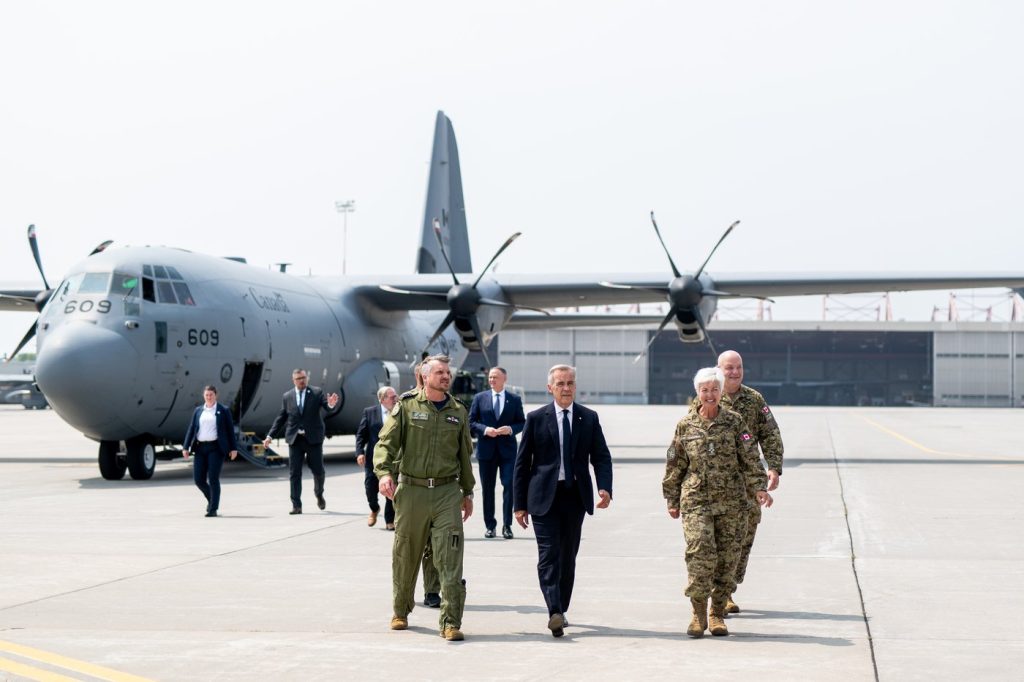OTTAWA – The Canadian federal government has announced an increase in entry-level pay for members of the Canadian Armed Forces, a decision that experts believe is long overdue. Prime Minister Mark Carney revealed on Friday that regular force privates will see a 20 percent raise, while reservists will receive a 13 percent raise. These pay increases are set to be retroactive from April 1, 2025.
Fen Hampson, a professor of international affairs at Carleton University, commented on the necessity of pay raises, especially at the entry level. He emphasized that if the government plans to increase spending on defense, boosting salaries—particularly for new recruits—is a "good way to do it." Notably, the Canadian Armed Forces have faced challenges in recruitment and have recently encountered reports of rising incidents of hate conduct and racism within its ranks. Hampson argued that elevating salaries is a strategic move to attract more individuals to enlist.
Hampson also pointed out that while raising salaries is essential, it alone won't suffice to meet NATO's defense spending goal amid a slowing economy. He referenced recent Statistics Canada data indicating that Canada lost 41,000 jobs in July 2025, which raises further questions about economic health and defense commitments.
In addition to the pay increases for entry-level ranks, Colonel ranks and above will receive an 8 percent increase, while lieutenant-colonels and those below their rank will see a 13 percent raise. Carney's announcement positions these salary adjustments as part of a broader strategy to enhance both recruitment and operational readiness within the Canadian Armed Forces. "All members of the Canadian Armed Forces will receive a pay raise," Carney affirmed. "These increases in pay and incentives will help us to revitalize and transform recruitment and retention, to bolster force readiness, and to ensure that members in uniform have the confidence and certainty they need."
Citing the projected costs, federal bureaucrats indicated that the new compensation structure is expected to cost approximately $2 billion annually, forming part of a proposed $9.3 billion budget increase aimed at achieving NATO's defense spending benchmark of 2 percent of GDP. The government is also introducing new military allowances and enhancing existing ones to improve personnel retention and recruitment in a competitive job market. Among these initiatives are $50,000 bonuses for individuals entering critical job roles, referred to as "stressed occupations," where current staffing levels are reportedly below 75 percent in 53 out of 116 critical positions, including vehicle and maritime technicians.
David Perry, the president and CEO of the Canadian Global Affairs Institute, praised the government's recruitment strategy, describing it as incorporating "a bunch of smart things." He highlighted that scaling the pay increases rather than implementing an across-the-board hike was a more efficient use of funds. Although Defense Minister David McGuinty had previously advocated for a 20 percent increase for all members, the measures put forth by Carney categorically address specific ranks. Perry also expressed approval for the targeted incentives designed to attract personnel to understaffed segments of the military, suggesting that these adjustments will significantly enhance the attractiveness of entry-level roles.
This strategic plan to raise military pay and improve recruitment comes at a crucial juncture as the Canadian Armed Forces aim to bolster their readiness and capabilities in the face of ongoing global challenges.











